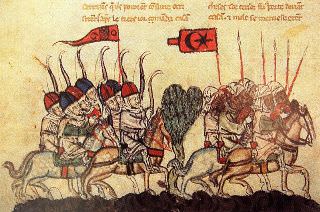By Amalia Levanoni
World History Connected, Vol. 7.1 (2010)

Introduction: While women were occasionally able to influence matters of rule in Medieval Islam, it is likely that only three reached a formal position of power. The first was Radiya (d. 1240), the daughter of Sultan Iltumush, who ruled Delhi for three and a half years during the period of slave kings. The second was Shajar ad-Durr (d. 1257) who ruled in Mamluk Egypt for about three months, and the third was Tandu (d. 1419), the daughter of Hasan Ibn Uways, who ruled for about three years in the Mongol Ilkhanate of Persia. Yet their experience did not form a precedent for change in Muslim concepts on the role of women in society in general and in politics in particular. We find that contemporary chronicles treated their active political roles as curious episodes and sporadic experiences while in Muslim political literature they are not mentioned at all.
Although all three cases occurred in Turkic societies which accorded, at the time, an elevated status to women, Shajar al-Durr’s is the most interesting as a case study. Whereas Radiya and Tandu were born into ruling families, Shajar al-Durr was originally a slave girl and as such could not claim rule by inheritance. More important is that while the first attained power in Islamic societies which still maintained their ancient social and political traditions and thus could, a priori, accept women’s rule, Shajar al-Durr ruled in one of the Arabophonic regions where authentic Islamic religious tradition, including political authority, persisted without interruption from the time of the Arab conquests. This tradition denied females any formal position in government. Shajar al-Durr ’s position was further aggravated by the shaky situation of the Mamluk elite which supported her rule. It was not only an alien military elite of slave origins but at the time, it was in a state of taking its first steps in consolidating its social and political legitimacy after placing themselves instead of a legitimate Muslim dynasty, the Ayyubids, in a coup d’etat (1250).
As Shajar al-Durr’s case combined the attitudes of both Turkic and Arabophonic societies to women’s position in government, this article tries to briefly trace her rise to power and indicate why her rule indeed remained an episode without further consequence for the position of women in Muslim politics.
http://worldhistoryconnected.press.illi ... anoni.html

